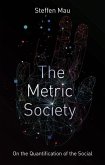In recent years there has been a great deal of speculation about the possible consequences of the new technologies based on the silicon chip. The forecasts vary enormously from those who predict their use in an oppressive manner by government and the state, to those who envisage the advent of the micro-millennium. This book provides an overview of the available evidence about whether we are entering a phase of social existence without precedent - the 'information society'. Further, it asks whether other treatments of the information society theme are asking the right kind of questions. In a departure from previous localized and technically-oriented studies, the author examines the social shaping of technology (by government, military and commercial-industrial interests), its global context and its cultural dimensions. Intended as a bridge between the literatures of 'social theory' and the 'social impact of technology', this study exposes the myths surrounding the creation of the information society, discussing such technologies as cable TV and robotics from many different societies. In a clear, balanced assessment, the book points not only to new departures but also to the perpetuation of present trends within industrial societies. It also asks not only what is shaping present developments, but what kind of values should do so.








